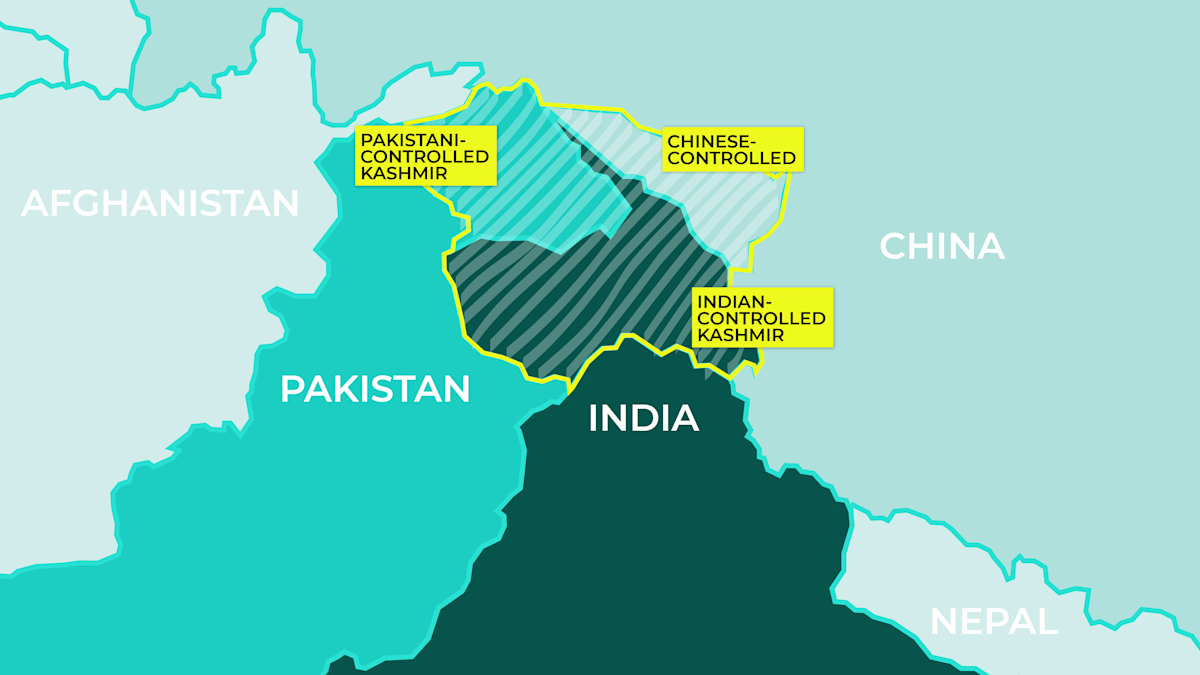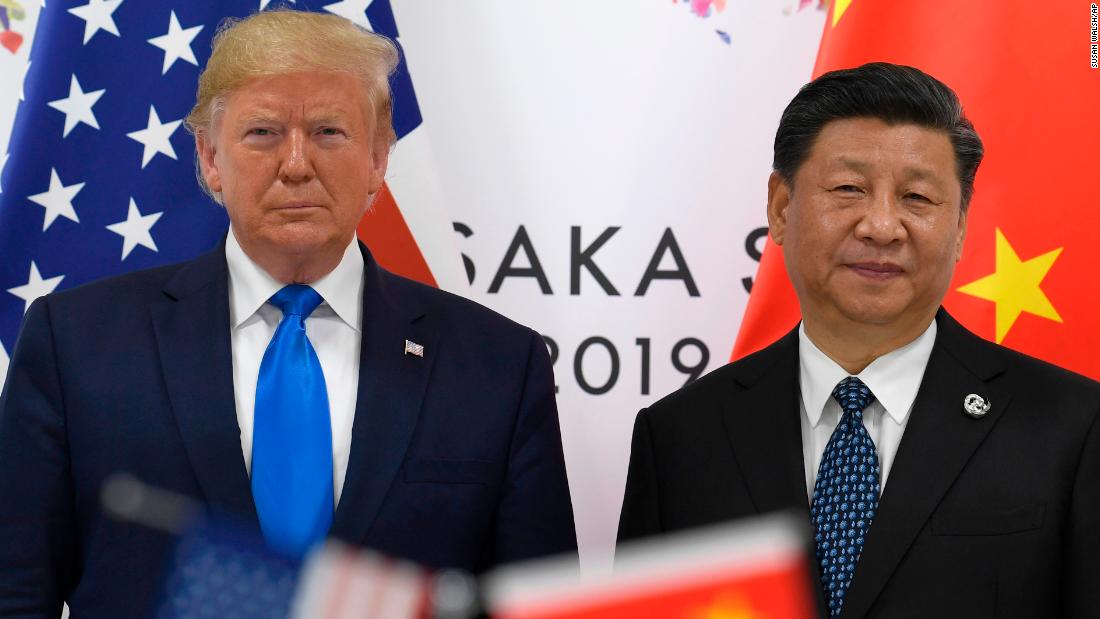India-Pakistan Conflict: The Enduring Significance Of Kashmir And The Risk Of Renewed Hostilities

The Historical Roots of the India-Pakistan Kashmir Conflict
The partition of India and Pakistan in 1947, a traumatic event driven by religious differences, left the princely state of Jammu and Kashmir with its future unresolved. This ambiguity ignited the first Kashmir War (1947-48), a conflict that continues to shape the relationship between India and Pakistan. The Maharaja of Kashmir, initially hesitant, ultimately acceded to India in exchange for military assistance against Pakistani tribal forces. This accession, however, remains contested by Pakistan, which claims the entire region based on its Muslim majority population.
- The princely state of Jammu and Kashmir's accession to India: This pivotal decision formed the basis of India's claim to the region and remains a central point of contention.
- The first Kashmir War (1947-48): This war solidified the division of Kashmir, with India controlling the majority of the territory and Pakistan administering a portion known as Azad Kashmir and Gilgit-Baltistan.
- The subsequent wars of 1965 and 1971: These further escalated tensions and solidified the military divide, leaving the Kashmir issue unresolved.
- The Simla Agreement (1972): While aiming to improve relations and resolve disputes peacefully, this agreement failed to address the core issue of Kashmir's final status, leaving the conflict simmering beneath the surface. The agreement emphasized bilateral discussions but provided no concrete mechanisms for resolution.
These historical events, rooted in the chaotic Partition of India and fueled by subsequent conflicts, have created a deeply entrenched narrative on both sides, making a peaceful resolution exceptionally challenging. Understanding this Kashmir History is key to grasping the present-day complexities.
The Geopolitical Significance of Kashmir
Kashmir's strategic location at the crossroads of India, Pakistan, Afghanistan, and China gives it immense geopolitical importance. Control of this territory offers significant advantages to both nations.
- Access to water resources (Indus River): The Indus River system, vital for agriculture and livelihoods in both countries, flows through Kashmir, making its control a critical factor.
- Control of vital trade routes: Kashmir's location is strategically significant for trade and connectivity within the region and beyond.
- Nationalistic sentiments and territorial claims: For both India and Pakistan, Kashmir represents more than just territory; it’s a matter of national pride and identity. These strong nationalist sentiments fuel the conflict.
- International implications and great power involvement: The Kashmir dispute has drawn in international players, complicating efforts towards a resolution. The involvement of other nations adds layers of complexity to an already difficult situation.
The strategic importance of Kashmir, in terms of its resources and geopolitical positioning, fuels the intense competition between India and Pakistan, further exacerbating the conflict. This aspect of Kashmir Geopolitics is often overlooked in simplistic analyses.
The Role of Non-State Actors and Terrorism
The India-Pakistan Kashmir conflict has been significantly complicated by the involvement of various militant groups. Cross-border terrorism has become a defining feature of the conflict, resulting in significant loss of life and destabilization of the region.
- Cross-border terrorism and its consequences: The movement of militants across the Line of Control (LoC) has fueled cycles of violence and retaliation.
- The impact of militant groups on civilian populations: Civilians on both sides of the LoC have suffered immensely due to the actions of these groups.
- The role of external actors in supporting militant groups: Allegations of external support for militant groups further complicate the conflict, adding another layer of international involvement. This Kashmir Terrorism remains a significant hurdle to peace.
The issue of India-Pakistan Terrorism, specifically the cross-border movement of militant groups, adds significant complexity to the already challenging political and historical dimensions.
The Current State of the India-Pakistan Kashmir Conflict and the Risk of Renewed Hostilities
The current situation in Kashmir remains highly volatile. Recent events, particularly the revocation of Article 370 in 2019, have further heightened tensions.
- The revocation of Article 370 in 2019 and its implications: This controversial move by the Indian government sparked widespread protests and condemnation internationally.
- Increased military presence and security concerns: The increased military presence in the region raises concerns about potential escalation.
- The potential for further escalation and regional instability: The risk of renewed hostilities remains high, with the potential to destabilize the entire region.
- International efforts towards de-escalation and diplomacy: International efforts to de-escalate tensions and promote dialogue are crucial but have yielded limited success to date.
The Kashmir Current Events highlight the ongoing fragility of the peace process and the need for sustained international engagement to address the India-Pakistan Relations. The potential for regional instability cannot be underestimated.
Conclusion
The India-Pakistan Kashmir conflict is a complex and multifaceted issue with deep historical roots and significant geopolitical implications. The enduring significance of Kashmir, coupled with the involvement of non-state actors and the potential for renewed hostilities, underscores the urgent need for peaceful resolution. The intertwined historical grievances, strategic importance of the territory, and ongoing terrorist activities create a volatile and dangerous situation.
Understanding the nuances of the India-Pakistan Kashmir conflict is paramount. Continued dialogue, international mediation, and a commitment to de-escalation are crucial steps towards preventing further violence and achieving a lasting peace in the region. We must prioritize diplomatic solutions to the India-Pakistan Kashmir conflict and address the underlying causes of this enduring dispute. A comprehensive and lasting peace requires a commitment from all parties involved to find common ground and address the needs and concerns of all stakeholders in Kashmir.

 Bitcoin Madenciligi Artik Eskisi Kadar Kazancli Degil Mi Gelecegi Ne
Bitcoin Madenciligi Artik Eskisi Kadar Kazancli Degil Mi Gelecegi Ne
 Dwp Benefit Cuts Thousands Affected By April 5th Changes
Dwp Benefit Cuts Thousands Affected By April 5th Changes
 Pik Seged Senzatsionalna Pobeda Nad Pariz Za Plasman U Chetvrtfinale Lige Shampiona
Pik Seged Senzatsionalna Pobeda Nad Pariz Za Plasman U Chetvrtfinale Lige Shampiona
 Understanding Matt Damons Success Through Ben Afflecks Eyes
Understanding Matt Damons Success Through Ben Afflecks Eyes
 Crypto Market Rally Bitcoin Benefits From Us China Trade Talks
Crypto Market Rally Bitcoin Benefits From Us China Trade Talks
